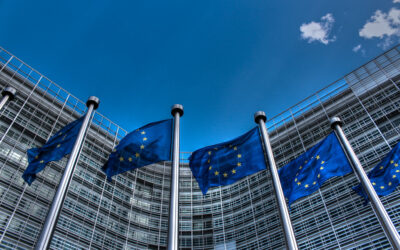
As the migration topic is one of the highlights topics nowadays, especially due to the June elections in the European Union, today’s article will delve into the dynamics of migration in the EU due to political changes.
The recent agreement between the Spanish presidency and the European Parliament encompasses five key EU laws designed to enhance asylum and migration management. These laws address various stages from screening irregular migrants upon arrival, taking biometric data, processing asylum applications while reinforcing applicants‘ rights, determining member state responsibility for asylum applications, and promoting cooperation and solidarity among member states in crisis situations, including the instrumentalization of migrants.
The Asylum Procedure Regulation (APR) establishes a common procedure for international protection applications across member states. It includes provisions for free legal counselling and sets clear obligations for asylum seekers to cooperate with authorities. The APR also introduces a mandatory border procedure aimed at quickly assessing asylum claims at external borders, particularly for those posing security threats or with low recognition rates. Unaccompanied minors are generally excluded from this procedure unless they pose a security threat. Additionally, member states are required to maintain adequate reception and processing capacity to handle asylum applications efficiently.
The Border Procedure is mandatory for certain categories of asylum seekers, such as those deemed a threat to national security. This procedure prioritizes applications from minors and their families and ensures fundamental rights are respected throughout the process. Member states must also establish adequate capacity to process and enforce return decisions for asylum applications, with an EU-level target set at 30,000. Each state’s capacity is determined based on irregular border crossings and refusals over a three-year period.
The Safe Third Country Concept allows member states to reject asylum applications if the applicant can safely relocate to a third country with which they have a significant connection. This ensures that the applicant’s life and liberty are protected and that they are not at risk of refoulement.
The Asylum and Migration Management Regulation (AMMR) replaces the Dublin Regulation, clarifying responsibility criteria for asylum applications and streamlining transfer rules. It mandates that asylum seekers apply in the member state of first entry or legal stay, though another state may assume responsibility under certain conditions, such as possession of an EU member state diploma. The regulation also expands criteria for family reunification and introduces national and EU strategies to prevent abuse and secondary movements.
A New Solidarity Mechanism is established to balance the current system, where a few member states handle the majority of asylum applications. This mechanism includes mandatory and flexible support options, such as relocations, financial contributions, and capacity-building measures. Minimum annual targets for relocations and financial contributions are set, and an EU solidarity coordinator will oversee the implementation of these measures.
The Screening Regulation strengthens border controls and ensures the swift identification of the correct procedures for irregular migrants. This includes health and security checks, fingerprinting, and biometric data collection, which should be completed within seven days near external borders.
The Eurodac Expansion enhances the biometric database to better track asylum seekers and irregular migrants. It collects additional personal data and lowers the age for mandatory data collection from 14 to 6 years. The database now also includes information on beneficiaries of temporary protection and supports resettlement schemes. Eurodac will be used by law enforcement to prevent, detect, or investigate serious criminal offenses and terrorist activities.
In terms of Crisis Management, the new regulations allow member states to adjust asylum procedures during crises, including extending registration deadlines and altering criteria for the border procedure. Solidarity measures for states facing crises include relocations, financial contributions, and alternative support measures. These regulations aim to create a more efficient European asylum system, promoting solidarity among member states while balancing responsibility and support mechanisms.
Nonetheless, the influence of far-right parties on EU migration policy has been evident even before recent elections, with the European People’s Party (EPP) adopting tougher stances on illegal immigration. The Identity and Democracy (ID) group claims their demands are reflected in the EU Council’s conclusions. Hostility towards immigration unites far-right factions, which exploit public concerns about healthcare, housing, and the cost of living, making immigration a sensitive topic, especially after the 2015–16 migrant influx. In response, centrist parties have adopted far-right rhetoric to retain voters. The securitization of migration, framing it as a security threat, has led to policies like the New Pact on Migration and Asylum, marking the biggest overhaul of EU migration policy in over a decade. As the pact moves towards implementation, far-right parties, including those in the European Conservatives and Reformists (ECR), argue it does not go far enough, advocating for stronger border controls and external processing of asylum claims.
References
Kleis, J. (2023, December 21). The Council and the European Parliament reach breakthrough in reform of EU asylum and migration system. Retrieved from European Council: https://www.consilium.europa.eu/en/press/press-releases/2023/12/20/the-council-and-the-european-parliament-reach-breakthrough-in-reform-of-eu-asylum-and-migration-system/
van Rij , A., Benton , T., Butler , C., & Schroder , P. (2024, June 11). How will gains by the far right affect the European Parliament and EU? Retrieved from Chatham House: https://www.chathamhouse.org/2024/06/how-will-gains-far-right-affect-european-parliament-and-eu
Photo: R.5c62e08eb78d96726c8998fa0007157b (2000×1000) (bing.com)



